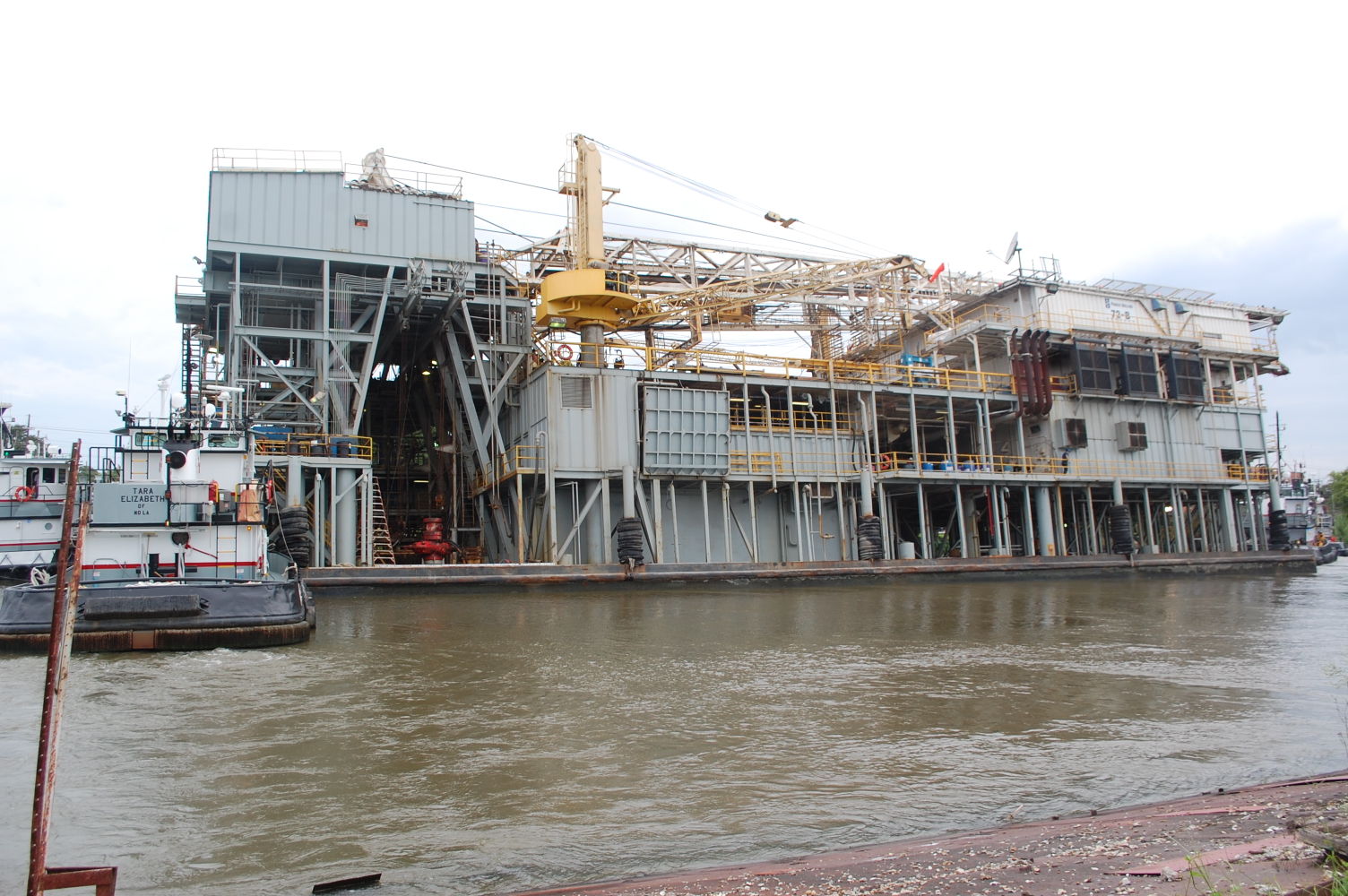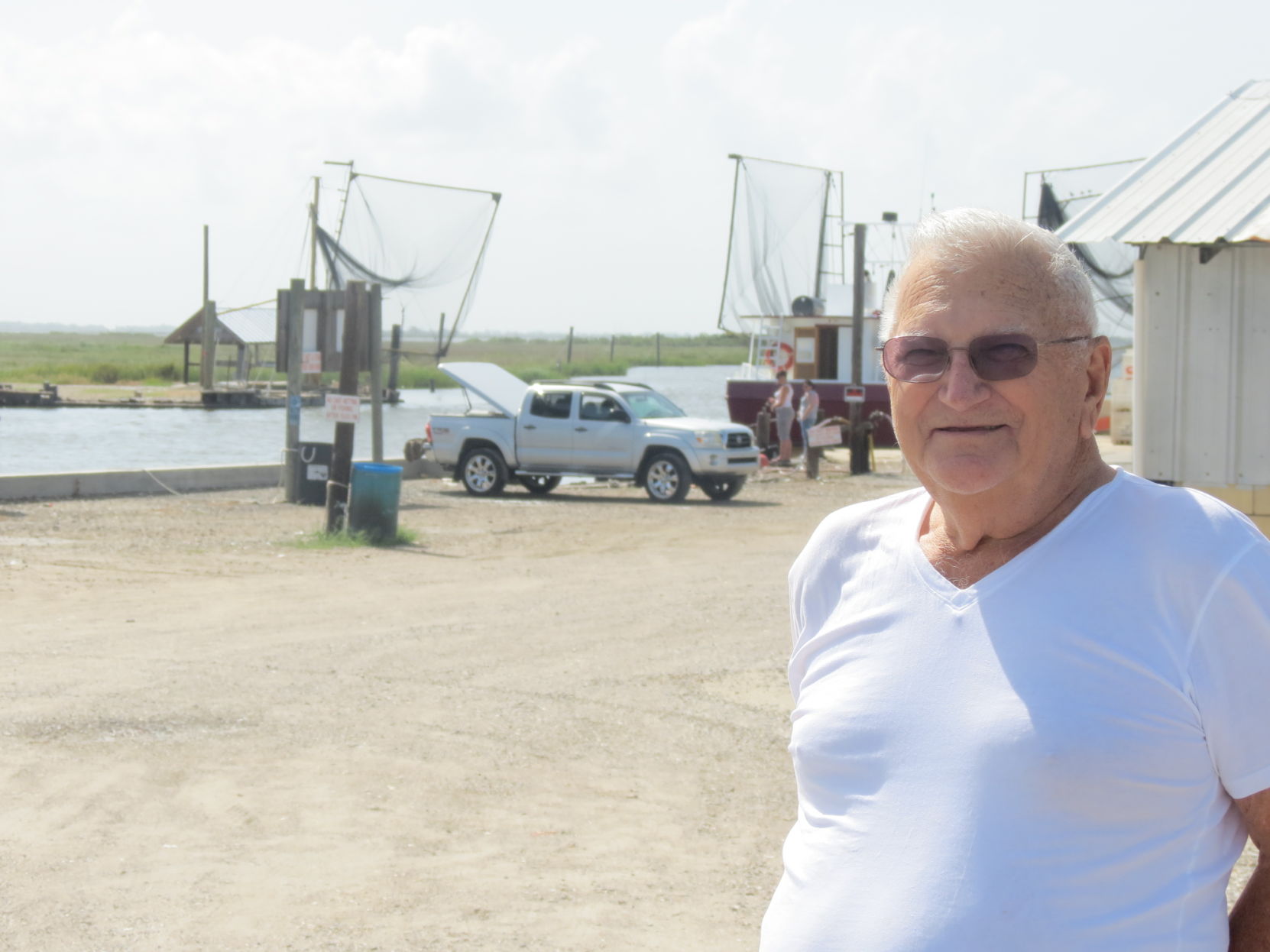
Nicholls VP for academic affairs steps down
September 2, 2014
Rig mishap shuts Houma’s Intracoastal Waterway
September 2, 2014A Terrebonne Parish canal frequently traveled by anglers could be private property, according to the claim of a business owner, who wants to bar specific individuals from traversing it.
Terry Lapeyrouse, who for decades has operated a general store on the north bank of the Robinson Canal in Cocodrie and a boat launch and RV camp on the south bank, pressed his claim in an unusual legal proceeding calendered Friday before District Judge David Arceneaux.
Figuring into the case are documents dating back to the Louisiana Purchase, and a controversial Louisiana Supreme Court decision in more recent times that appears to bolster the claim.
Lapeyrouse petitioned for a writ of mandamus against Terrebonne Sheriff Jerry Larpenter, stating that Larpenter’s deputies have not issued summonses or made arrests of alleged trespassers on the canal when he has complained of them.
A writ of mandamus, generally in Louisiana law, is an order by a court that an official or agency perform a lawful duty.
The canal links Bayou Petit Caillou with Lake Robinson and, ultimately, Lake Boudreaux.
Arceneux declined to hear the matter Friday morning, citing a 1936 court decision stating that a judge can’t order law enforcement to follow a given course in what amounts to a discretionary matter, unless a warrant is involved.
“The judge said that he didn’t have the right to tell the sheriff how to do his job,” said attorney Paul Lapeyrouse, who represents the landowner. “There are some ways to appeal to the sheriff to enforce the law and for the district attorney to enforce the law … The state does not have any ownership interest in Robinson’s Canal. No public money was used in building it, nor was it built on public property. Through the years the fact that people are using the canal was not in and of itself an acquisition of a servitude of any kind, It was not a donation or a dedication of a public use.”
Lapeyrouse’s string of deeds and other official paperwork that he claims bolster the case resulted in a private presentation before the Sheriff, who will determine based on his counsel’s opinion whether he is protected from liability in making arrests or issuing citations.
Lapeyrouse has no plans to build fences or otherwise restrict the general public from using it.
The legal issue arises from a long-simmering family dispute between Lapeyrouse and a son-in-law, whom Lapeyrouse has repeatedly ordered off the premises, and whose shrimp boats he has ordered off of the canal.
At all times when the law was called, deputies acted on the presumption that the canal is a public waterway and that they cannot force any member of the public to leave it.
Lapeyrouse – who has no problem with the public at large using the canal – only wishes to bar people he chooses from doing so, such as the son-in-law.
The land was part of the 1803 Louisiana Purchase and held by the U.S. until it was sold in 1846 to James Scudday, believed to have been a physician and later a mayor of Thibodaux.
The federal government at that time was selling many previously public lands to finance western expansion and other projects.
At the time Scudday bought the property there was no canal, according to the records.
Scuddy sold the land almost immediately to Messrs. Simpson and Whitney of Houma, and then in 1849 Robinson acquired the property from them.
Work on the canal, which was to service Robinson’s plantation in the area, was estimated to have begun in 1849.
Chains of title continued, with various portions sold off or appended, but never, according to record, with any change to the status of the canal.
By 1960 Lapeyrouse owned the canal and land on either side of it, according to the presentation of records.
With the title question settled, the problem remaining is determining how, in a water body the public uses routinely, private interest can remain.
For that Paul Lapeyrouse turned to a case brought by tugboat tycoon Arlen “Benny” Cenac, whose claim on the Company Canal in Gheens at Golden Ranch was the subject of bitter litigation.
The 2003 decision affirmed Cenac’s right of ownership to a boat launch on the Company Canal, despite its long-standing use by the public.
A doctrine called “implied dedication,” which would have erased Cenac’s claim, could not be used in that case because, the decision states, for implied dedication to exist there must be “an unequivocally manifested intent to dedicate on the part of the owner and an equally clear intent to accept on the part of the public.”
An act of donation, attorneys have maintained, is one way the intent of the owner can be established. The court went further in its Cenac decision, citing a statute which reads “whenever any land owner voluntarily, whether expressly or tacitly, permits passage through or across his land by certain persons or by the public, solely for the purpose of providing a convenience to such persons in the ingress and egress to and from waters
for boating, or for the purpose of ingress and egress to and from any recreational site, neither the public nor any person shall thereby acquire a servitude or right of passage, nor shall such passage become a public road or street by reason of upkeep, maintenance, or work performed thereon by any governing authority.”
The Lapeyrouse situation, attorneys said, has similarities that are clear enough for law enforcement to enforce his exclusion of whomever the property owner wishes.
Lapeyrouse also claims tax records showing he has consistently been taxed on the canal bottom, too.
If and when a ticket is issued or arrest made, the state will have the burden of proving that a defendant trespassed, which would involve proving the water beneath the canal belongs to Lapeyrouse.
Almost anyone traveling between Bayou Petit Caillou and Lake Robinson by water, representatives for Lapeyrouse have said, has nothing to fear from his current affirming of property right to the water bottom.
Attorney Bill Dodd, who represents the sheriff’s office, affirmed that his chief concern has been ensuring that officers fairly enforce the law, and that the sheriff not be placed in jeopardy of falsely arresting or citing someone.
Arrest or citation, he noted, is not always necessary.
An order by a deputy that a person leave the canal could be all that is needed, so long as it is followed.
Terry Lapeyrouse discusses his attempt to affirm private ownership of the Robinson Canal in Cocodrie, which is behind him.














